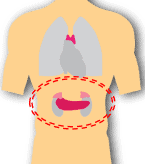Featured Products
Explore Products
- In-Stock Tumor Cell Lines
- Human Orbital Fibroblasts
- Human Microglia
- Human Pulmonary Alveolar Epithelial Cells
- Human Colonic Fibroblasts
- Human Type II Alveolar Epithelial Cells
- Human Valvular Interstitial Cells
- Human Thyroid Epithelial Cells
- C57BL/6 Mouse Dermal Fibroblasts
- Human Alveolar Macrophages
- Human Dermal Fibroblasts, Adult
- Human Lung Fibroblasts, Adult
- Human Retinal Muller Cells
- Human Articular Chondrocytes
- Human Retinal Pigment Epithelial Cells
- Human Pancreatic Islets of Langerhans Cells
- Human Kidney Podocyte Cells
- Human Renal Proximal Tubule Cells



 The PSN-1 cell line is derived from a pancreatic adenocarcinoma patient. It was established through transplantation into nude mice, originating from the xenograft. Remarkably, PSN1 cells maintain the same elevated levels of both c-myc (50-fold) and activated c-Ki-ras (3-6 fold) with a specific mutation (GGT to CGT at codon 12) as found in the original tumor. Additionally, increased c-myc and c-Ki-ras transcripts are present. The cell line shows loss of one p53 allele and a mutation (AAG to CAG at codon 132) in the remaining allele. PSN1 is cultured continuously as a monolayer with an epithelial morphology.
The PSN-1 cell line is derived from a pancreatic adenocarcinoma patient. It was established through transplantation into nude mice, originating from the xenograft. Remarkably, PSN1 cells maintain the same elevated levels of both c-myc (50-fold) and activated c-Ki-ras (3-6 fold) with a specific mutation (GGT to CGT at codon 12) as found in the original tumor. Additionally, increased c-myc and c-Ki-ras transcripts are present. The cell line shows loss of one p53 allele and a mutation (AAG to CAG at codon 132) in the remaining allele. PSN1 is cultured continuously as a monolayer with an epithelial morphology.